Chhath is an ancient Hindu festival, which is joyously celebrated in several states across India. The festival involves worshiping and thanking the Hindu Sun God Surya over a period of four days during which devotees fast. Traditionally, the festival is observed twice a year — once during summer season, six days after Diwali and once again during the winters.
The root of the chhath puja lies in the day it is celebrated. Devotees worship on the sixth day of the month Kartika of the Hindu lunar calendar; chhath denoting the number six in many Indian dialects.
The festival in Bihar came to an end amid fanfare with the devotees offering morning arghya or oblations to the sun god in rivers, ponds and tanks across the state on Thursday.
Lakhs of devotees assembled at the river banks and near other water bodies since the wee hours and waited for the sun to appear at dawn. Fireworks lit the sky as family members of devotees indulged in festivities.
Many devotees had spent the night at the river banks itself to avoid returning home and then coming back to the same spot where they had offered the evening arghya.
As the sun appeared on the horizon, people offered fruits, ‘thekua’ (homemade flour cookies), water, milk and other preparations to the deity and completed the rituals while standing in knee deep water. Afterwards, the devotees broke their two-day long arduous fast by having prasad and water.
Tight security was witnessed at all the river banks with police and paramilitary personnel, as well as, teams of National Disaster Response Force and State Disaster Response Force present in all readiness to thwart any untoward incident.
Over 12 lakh people participated in Chhath rituals along the Ganga in the Patna district. Youth associations and civil society organisations worked continuously since Wednesday to keep the roads, streets and lanes clean and keep them lighted.
As the devotees returned from river ghats and ponds after completing the Chhath rituals, the youth organisations who had helped in making the festive occasion a success demanded prasad as favour and the people obliged them happily.
On the first day devotees take a dip in the holy rivers and carry home the water from the same to prepare the offerings. The house and surroundings are scrupulously cleaned.
The ladies observing the vrata, or fast, are called vratis and allow themselves only one meal on this day.
On the first day, devotees abstain from eating apart from the morning meal until the next day’s evening at which time kheer, chappatis and fruits are consumed.
The third day is called saandhya argha. Those fasting completely abstain from eating anything on this day. The sinking sun is worshiped and given offerings or argha in the evening.
The final day which is called suryoday argha sees devotees giving offerings to and worshiping The final day which is called suryoday argha sees devotees giving offerings to and worshiping the sun as dawn strikes after which devotees break their fast by consuming the chhath prasad
NEW DELHI: A day after the central government submitted a list of black money account holders to the Supreme Court, India pulled out of a multilateral information sharing agreement, CNN IBN reports.
The government move is surprising considering that the Multilateral Competent Authority Agreement, signed by 51 countries in Berlin on Wednesday, enables automatic information sharing between the signatory countries.
The agreement also would provide for collecting, exchanging information on tax payers’ overseas assets.
The report adds that an uncertainty over the ability to comply with confidentiality clause of the agreement led to the government move.
Attorney General Mukul Rohatgi Wednesday submitted three sets of documents, containing the list of 627 people having illegal accounts in foreign banks, to the Supreme Court in a sealed cover.
The government also submitted a status report in a sealed cover.
The apex court said only SIT chairman and vice chairman can open the seal and asked the investigating agency to submit the status report of its probe by November-end. The apex court allowed the Centre to put forth its grievances regarding various treaties with foreign countries before the SIT.
The Supreme Court had earlier on Tuesday reprimanded the Centre after the latter released the names of just three account holders on Monday and asked it to release the names of all the people who have stashed away black money in foreign banks. (With inputs from agencies)
A child is entitled to complete education and ancillary expenses irrespective of dispute of parents, a Delhi court has said while directing the father of a girl to ensure her re-admission in school as she could not attend classes due to her mother’s incapability to pay fees.
The court’s observation came while granting interim relief to a woman for her child in a domestic violence case against her estranged husband.
“Denial of financial assistance to the child is economic violence and is covered within the definition of domestic violence as defined under the PWDV Act.
“Be that as it may, the child is entitled to complete her education and is also entitled to other ancillary expenses irrespective of the dispute of parents,” Metropolitan Magistrate Shivani Chauhan said while noting that the child has been out of school for reasons which can’t be attributed to her own acts.
“Right to Education and maintenance are the basic rights of the child without which her full development cannot take place. In these circumstances, father of the child is directed to deposit the school fees, re-admission fees, transportation fees, examination fees etc. Directly with the school where she was earlier studying within 10 days,” the court said.
The court also directed the principal of the school to reinstate the child in the same session, in which she would be studying had she not withdrawn, on payment of fees as required according to the rules of the school.
“The school authorities are further requested to provide the child with the class notes for the period which she has missed. They are further requested to ask the teachers concerned to help the child to cope up and catch up with her studies so that her crucial year of education does not go waste,” it said.
The court rejected the contention of the father that his wife had voluntarily withdrawn the child from school despite her earlier agreement with him that she would take her entire responsibility.
“Any alleged agreement between the parties (parents), which is detrimental to the interest of the child, especially to the extent that she is unable to complete her education, cannot be considered equitable in the eyes of law. More so, when it deprives the child of her right to education,” it said.
It also directed the father to pay other ancillary expenses, including stationary and tuition according to the child’s requirement so as to enable her to cover up for the period of seven months which she has missed.
‘s been no looking back since. The leggy beauty has been born and brought up in South Africa and after winning the calendar Himarsha Venkatsamy is used to setting the camera lens on fire. The stunning model won the Kingfisher Calendar Girl Hunt in 2009 and therehunt, decided to make Mumbai her home. After making an appearance in I Hate Luv Storys, she is set scorch the screen as ‘Jhumpa’ in Roar: Tigers Of The Sundarbans, which is produced by Abis Rizvi and directed by Kamal Sadanah.
“I am a traveller at heart. Most people know about the Amazons but not many know about the Sundarbans. Being there was magical. We were literally at the mercy of Mother Nature. As for my role, Jhumpa is part of the jungle. I come from South Africa, a land famous for its wildlife. When I heard about the film, Jhumpa called out to me straight away, and I immediately felt connected to her. Shooting for this film has been one of the biggest adventures of my life. I’ve been thrown in crocodile infested water around four times! Abis and Kamal have been so supportive and helpful throughout this entire shoot and I wouldn’t trade this experience for anything.”
Roar: Tigers Of The Sundarbans, produced by Abis Rizvi and directed by Kamal Sadanah, releases on October 31st.
Kolkata, Jan 14 (IANS) A researcher at the Indian Association for the Cultivation of Science here has become the first Indian to win the “Young Investigator Award” from a renowned international scientific organisation.
Inorganic chemistry researcher Abhishek Dey has been selected for this year’s honour by the Society of Porphyrins and Phthalocyanines.
The society was formed in 2000 to highlight studies on the pigments (porphyrins and phthalocyanines).
Heme, the pigment responsible for the red colour of blood, is an example of porphyrin.
“It is an encouragement to carry out further research and good to see the community responding to our work,” Abhishek Dey told IANS.
Dey’s findings, which include a technique testing efficacy of Alzheimer’s drugs, have been consistently published in several international journals.
Every year the society recognises two young researchers, the other winner being Taku Hasobe from Japan.
The reception ceremony is scheduled during the International Conference on Porphyrins and Phthalocyanines (ICPP) in Istanbul later this year.
Top of Form
Heme, the pigment responsible for the red colour of blood, is an example of porphyrin.
“It is an encouragement to carry out further research and good to see the community responding to our work,” Abhishek Dey told IANS.
Dey’s findings, which include a technique testing efficacy of Alzheimer’s drugs, have been consistently published in several international journals.
Every year the society recognises two young researchers, the other winner being Taku Hasobe from Japan.
The reception ceremony is scheduled during the International Conference on Porphyrins and Phthalocyanines (ICPP) in Istanbul later this year.
Kolkata, Oct 30 (PTI) The Bengali film industry is likely to get a shot in the arm with West Bengal brand ambassador Shah Rukh Khan promising to promote Bengali films.
“I really would like to participate not as an actor but as someone who has a little more reach because of the language that I make films in. I would like to bring that expertise here and take the culture, literature and intellectual inputs from Bengal because I truly believe that this is the cultural hub of our country,” the superstar told reporters when asked about what his plans for Tollywood.
He said films are his forte and would like to do something for films made in Bengal.
“I would just take some time but I would do it. It is not my duty, its my privilege to do it,” the Bollywood star said.
Khan, who is celebrating the record-breaking box office success of his latest release ‘Happy New Year’, said it is unfortunate that some people think of him as being repetitive.
“I often read articles about how I keep doing the same thing. It’s unfortunate because I can’t explain people that it’s not the same thing. I feel very deeply about what I do and I try to turn it around and make light of what I do because I don’t think everyone wants to know the process that I go through as an actor.
“I reinvent myself every time,” SRK said and asked his fans to expect the unexpected from him.
“Please expect the unexpected from me. I try my best every time and give the unexpected for the love of the people.
I always try to be a little different and try to be little unexpected so that people are intrigued and enjoy my work,” Khan said.
SRK said all he wants to do is to try to be an actor.
“That’s all. I just want to act.”
SRK, who built 8 pack abs for ‘Happy New Year’, is all praise for co-actor Sonu Sood, saying his physique inspires him.
“He is so disciplined about his eating, sleeping time.
He inspires me,” the superstar said.
India ranked a dismal 142 among the 189 countries surveyed for the latest (2015) World Bank’s “Ease of Doing Business” report, down two places from its position last year, reports fe Bureau in New Delhi. Singapore retained the top slot for the ninth year in a row and all of India’s BRICS peers except South Africa improved their rankings. Among India’s neighbours, only Bangladesh (173) and Afghanistan (193) fared worse.
Click here for graph
The bank’s functionaries stressed that since the cut-off date for the report was May 31, 2014, the drop in India’s ranking “is not connected in any way” with the Narendra Modi government. They also expressed confidence that, helped by steps taken by the new dispensation to cut red tape and improve administration, the country’s standing would improve significantly next year.
Click here for graph
India’s slippage was nevertheless unnerving, especially given the fact the country ranked a deplorable 186th when measured by the metrics of “Enforcing contracts” and 184th in the category of “Dealing with construction permits”.
The only category India improved significantly from its position in the previous report was “Protecting minority investors”, where India’s rank in the latest survey was a creditable 7, up 14 notches from a year ago.
In the 2014 report, India had 52.78 points and this year, it scored 53.97 points; yet, it dropped in the pecking order because others’ improvement was steeper.
Augusto Lopez-Claros, director, Global Indicators Group, Development Economics of the World Bank Group, said: “It is absolutely true that the new government of Mr Modi has made it very clear that they see the creation of a better investment climate and a more business friendly environment in India a top priority. However, it is important to remember that the new Government did not come into office until the second half of May.”
Singapore with 88.27 points occupies the top position in the ease of doing business followed by New Zealand, Hong Kong, Denmark and South Korea. Among other major countries, the US has been ranked seventh (the same as the previous year) while the UK improved to eighth slot from 7th last year. China was ranked 90 (against last year’s 93) while Sri Lanka (99), Nepal (108), Indonesia (114), Maldives (116), Bhutan (125), and Pakistan (128) got higher rankings than India in the latest survey.
Margao: I-League winners Bengaluru FC made a perfect start to their Durand Cup campaign as they defeated defending champions Mohammedan Sporting 2-1 in the opening match of Pool C quarter-final league on Thursday.
Bengaluru, who led 2-0 at half time, scored through Sunil Chhetri (6th minute) and Evgeneson Lyngdoh (38th).
Mohammedan Sporting pulled one back through Alfred Jayran in the 66th minute.
Bengaluru FC, who had the lion share of exchanges, created several chances and could have won by bigger margin had it not been for rival keeper Arnab Das Sharma, who brought off good saves to deny Evgeneson Lyngdoh, substitutes Sean Rooney and CK Vineeth.
Bengaluru, who played three friendlies in China during their pre-season training, dominated the first half and held the midfield superiority.
They shot into the lead when Chhetri intercepted a wrong back pass from defender Gaur Naskar, before beating Das Sharma from close.
They continued to attack the rival box and could have doubled the lead had Robin Singh directed his shot on target.
Once his header was also saved by defender Irfan Khan on the goal line.
Bengaluru, after these close misses, increased the lead in the 38th minute when a move from the middle by Chhetri saw him relay the ball to Thoi Singh on the right, who sent a cross into the box for Lyngdoh to volley in into the far corner of the net.
Changing over, they continued to miss chances with substitute K Udanta Singh twice failing to score as he first shot out and then the rival keeper made a diving save.
Mohammedan Sporting, who failed to get a clear look at the rival goal in the first half, came with occasional forays in the second half and pulled one back when substitute Bijay Maddi laid a pass to Alfred Jayran on top of the box. Jayran got the better of a rival player and produced a shot that hit the post and went in.
http://youtu.be/64vj_AM5qOo

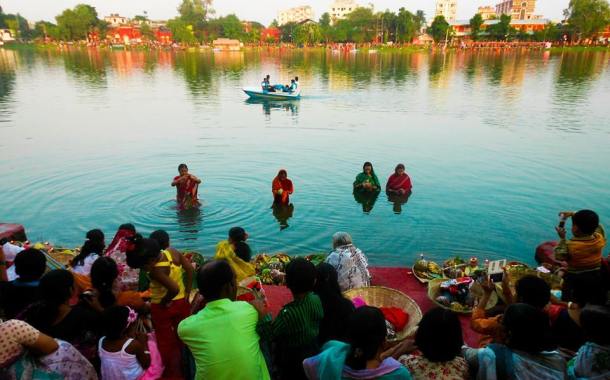
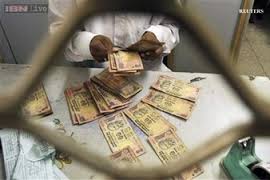
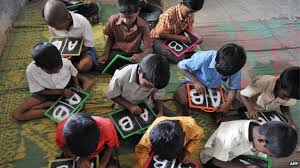

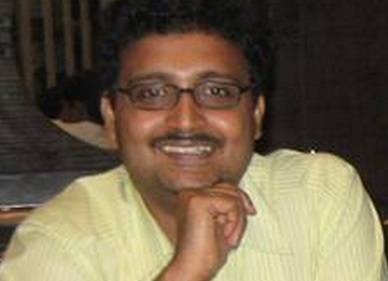

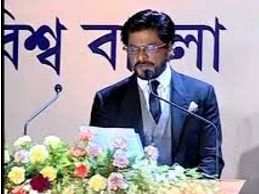

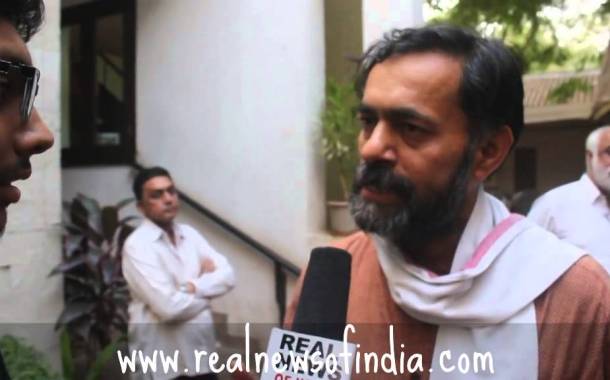





Recent Comments